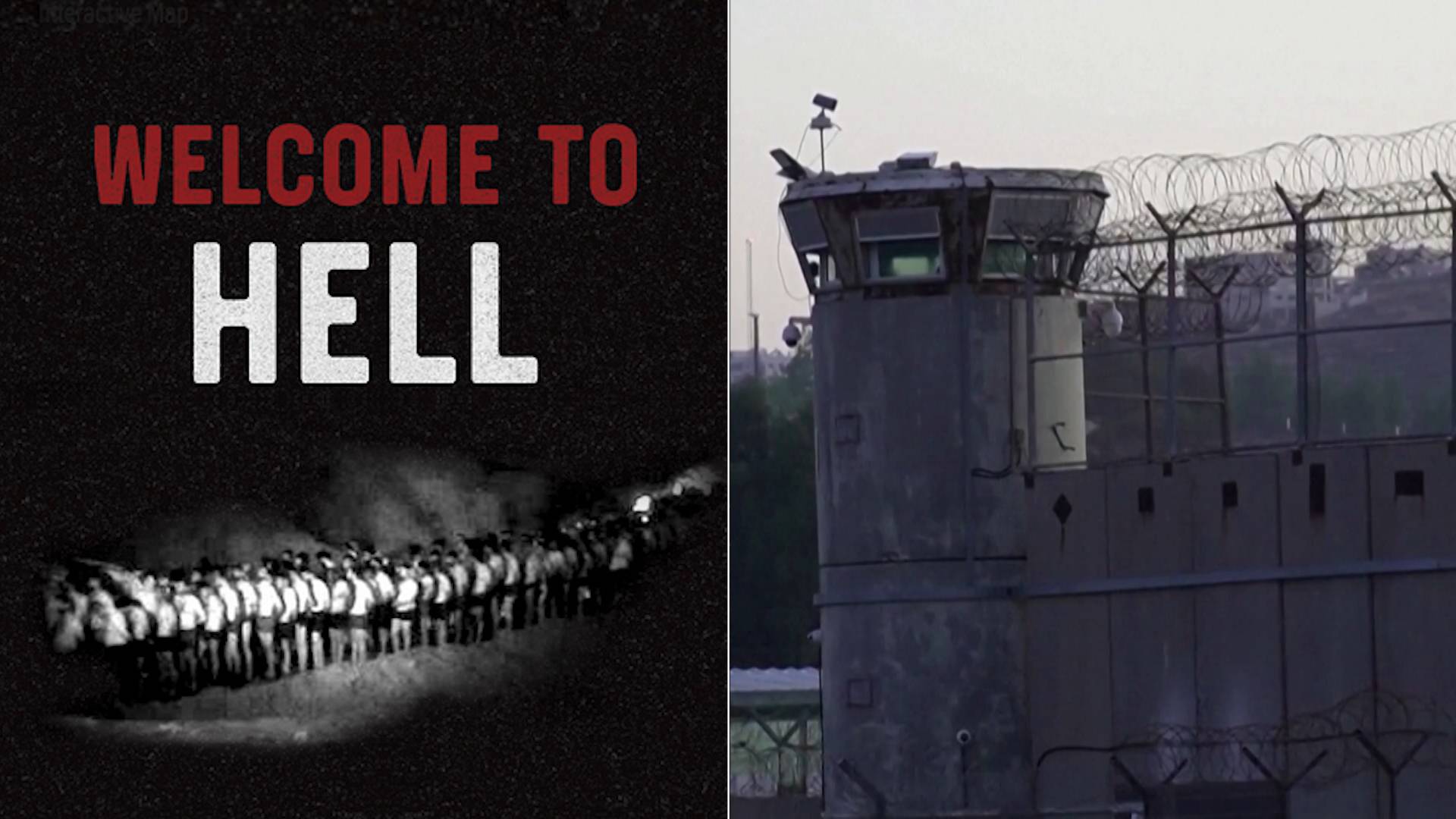The Israeli human rights group B’Tselem has published a major new report documenting how the Israeli prison system has become “a network of torture camps,” where physical, psychological and sexual abuse of Palestinian prisoners is normalized and routine.
The report, titled “Welcome to Hell,” collects the testimony of 55 Palestinians who were detained by Israeli authorities since October 7 and later released, almost all without charges. This comes as a group of U.N. experts condemned the widespread torture of Palestinians and as Israel’s Channel 12 News aired shocking footage of Israeli soldiers sexually abusing a prisoner at the Sde Teiman army base, where thousands of detainees from Gaza are held.
Sarit Michaeli, the international advocacy lead for B’Tselem, says the abuse in Israeli prisons is “systemic, ongoing and state-sanctioned,” reflecting the cruelty and thirst for revenge among a growing number of Israelis. “They would like to have a completely open field in terms of what they can do to Palestinians,” says Michaeli.
You can find the full report of testimonies here



20% of the Israeli citizens are Palestine descent. 2 million Palestinian citizens of Israel.
Yeah, their laws I pointed out to you on how schools operate realllly favour zainichi Koreans. /s Incase you need it
What about the occupied territories? They’re applying martial law there, and people have no prospect of citizenship. Then there’s plenty of Palestinans living in Israel who don’t have Israeli citizenship, or realistic prospect of citizens, e.g. in Jerusalem.
You have no idea how bad it is in Israel if you think it’s in any way comparable to Japan.
I’m sorry are you saying that Japan should introduce Korean native-level lessons in their state school curriculum or what’s your actual issue here. What would you change. I’ve yet to see any actual policy proposal from you: No solutions, just “Japan bad”. Why would Zainichi who don’t speak Korean want those types of schools.
Point me at a state and I’ll find several things that they should change. Do you e.g. really want to get me started on Korea with their rampant gerontocracy and misogyny.
Crucially, though, and this should make you think, none of what I said Japan should change actually came from an argument you made.
Africans themselves have criticized Japan for apartheid.
Miss me with whatever antisemitic you are ignorantly and bigantly spreading.
Have you actually read the corresponding section in Chapter 1. Quote:
Have you any idea how many countries traded with South Africa at that time? Not exactly the same thing but here’s a map of SA’s diplomatic ties 1974. Plenty of African states, say Madagascar or the Congo, were happy to take South African money. What does anything of that have to do with the status of Zainichi a whole 50 years later?
Yes I read it all. It shows a pattern for Japan which openly embraces apartheid up to recent times. They support that crap. Just like the congo did. In fact the congo like Japan was also an apartheid during those relations.
Circling all the way back to the beginning: If they currently support that crap, why did Abe get slammed for proposing Apartheid?
It really does seem like you have made up your mind about the Japanese and are trying very hard to scrape together whimsy excuses for your bigotry.
…and seriously. Congo. As in back then still named Zaire. Did I miss something was Mobutu white or something. Are you just making shit up.
Dude there are japanese authors who embrace apartheid not just abe. South Africa is tired of Japanese shit.
I’m not making anything up. I haven’t made a single thing up. You just don’t give a single shit.
Quote:
Also, again, Abe:
Politics in Japan are strange, they’re a proper democracy but also de facto a one-party state. Abe is dead, in more than one way.
And I mean – this is what you have? Random people say stuff and you elevate it to state policy and social sentiment? Then, I guess, all Canadians want first nation people in boarding schools, all Germans want to ethnically cleanse the country of immigrant blood, all French want to re-colonise Algeria, all Koreans want state-mandated girlfriends, the list is fucking endless.
This is not random people, that was a top advisors of the country.
However you justify it and make jokes. Don’t forget they also did kill 600k Koreans then pretty much enslave them for cheap labor. Waaaay more than Israel killed Hamas-Palestinians and civilian casualties.
Such a nice social sentiment /s